Top Tips for Student Success at Fulbright College
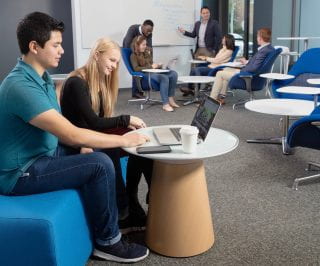
Want the inside scoop on the top ways you can create success as the new academic year begins? Then read on!
We’ve gathered some of the J. William Fulbright College of Arts and Sciences’ leading experts on student success and asked them to share their best tips.
Whether you’re a new or returning student, the parent of a student, a faculty or staff member, an alumnus or another part of our Fulbright College family, check it out and be sure to share this insiders’ advice.
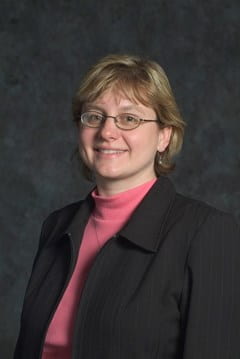 Deborah Korth
Deborah Korth
Director of Fulbright College Student Success,
Clinical Associate Professor
What is the one thing all students should do to best set themselves up for success this coming academic year?
Go to class! Even if the teacher does not require attendance, go to class. It is important to get to know your instructors and your peers in the class.
Pertinent information is shared in class whether it is about the material or class logistics. You do not want to miss out.
What is something most people wouldn’t have considered, but is paramount to student success?
Take care of yourself. Eat right. Exercise. Talk to someone when you are feeling stressed out, lonely, or anxious.
The Wellness Center describes 8 Dimensions of Wellness. It is important to seek balance in all eight dimensions.
What do you most wish students knew to help them succeed?
Put away your phone. Try to be fully present when you are learning.
That means putting away your phone when you are in class and studying. Studying and attending class without allowing your phone to distract you will help you to focus.
If you spend focused time while you are learning, not only will you be more successful, it will also take less time.
What resources on campus are underutilized “hidden treasures” that would really help students if they knew about them?
There are 11 High Impact Educational Practices (HIPs) as described by the Association of American Colleges and Universities that contribute to student success, including:
First-Year Seminars, Common Intellectual Experiences, Learning Communities, Writing-Intensive Courses, Collaborative Assignments and Projects, Undergraduate Research Diversity/Global Learning, ePortfolios, Service Learning, Community-Based Learning, Internships, Capstone Courses and Projects.
Students who are involved in at least three of them are more likely to be successful. We are working with the Office of Student Success to develop materials and courses to assist students in becoming involved in these HIPs.
How can students best contact your offices or connect with your teams?
Students can reach out to any member of the Fulbright Student Success Team for help. I can be reached at dkorth@uark.edu.
###
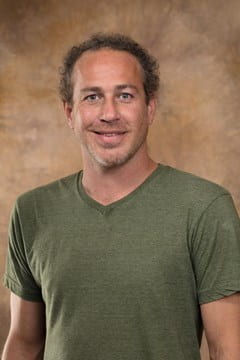 Jackson H. Jennings, Ph.D.
Jackson H. Jennings, Ph.D.
Clinical Assistant Professor and Assistant Director of STEAM Student Success in Fulbright College
What is the one thing all students should do to best set themselves up for success this coming academic year?
Don’t ever be afraid to ask! Ask questions about course material, ask for help with various issues that they may find themselves facing. There are resources and answers to nearly any question they may have.
What is something most people wouldn’t have considered, but is paramount to student success?
Learn to balance your social life with academia. College SHOULD be fun but finding that right balance is something that incoming freshmen are not ever taught to do. It takes self-exploration and time management to learn the ropes in terms of balance.
What do you most wish faculty would tell their students to help them succeed?
COME TALK TO ME! I recommend going to office hours to meet your instructor/professor and to discuss the course content. It’s also important to let the professor know where you’re coming from … for example, students who commute, or are first-gen, or have children – these are important aspects of a student’s life that would be good to communicate to a professor so they know where the student is coming from.
What resources on campus are underutilized “hidden treasures” that would really help students if they knew about them?
CLASS+ and UREC, students can get canoes/kayaks/bikes, etc. for weekend stress relief.
For students acclimating to the U of A, what resources can help them feel more at home and connected?
RSOs, the HPER building and Razorbash.
How can students best contact your offices or connect with your teams?
Send me an email! jjenning@uark.edu. My office door is open to any student on campus who feels they need help in their undergraduate coursework.
###
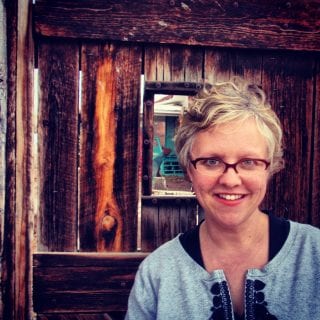 Kirstin Erickson, Ph.D.
Kirstin Erickson, Ph.D.
Director of the Fulbright College Honors Program,
Associate Professor of Anthropology
What is the one thing all students should do to best set themselves up for success this coming academic year?
I always tell my students who are writing papers that nothing is more useful than a well-elaborated outline.
A solid outline begins with a thesis statement (a clear articulation of your argument). The outline requires you to define your key points, helps you see the places where supporting evidence and key examples are needed, and prompts you to figure out where to describe your methodology, furnish context, or insert visuals.
A truly great outline serves as the scaffolding for a thoughtfully argued, provocative paper.
What is something most people wouldn’t have considered, but is paramount to student success?
I wish more students would use the Writing Center. Yes, Writing Center tutors help students identify and correct problems with punctuation, word-choice, and grammar. Yet they also dialogue with student writers to resolve issues with organization and promote effective argumentation.
The Writing Center is there for everyone, whether they are composing an essay, creating a work of fiction, or drafting a dissertation.
What is a “hidden treasure” piece of advice that would really help students if they knew about it?
A good night’s sleep is more important than you imagine – make it a priority!
Unfortunately, pulling an all-nighter before a big test is a game of rapidly diminishing returns; no matter how well you have prepared for an exam, you won’t think clearly or perform well if you’re sleep-deprived.
Establish a regular sleep schedule when you come to the university or, at the very least, get 7-8 hours the night before that big exam. You’ll be glad you did!
###
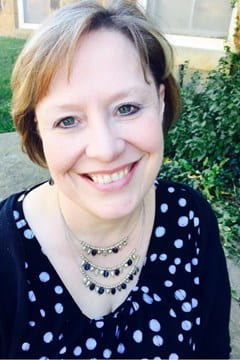 Teresa Scott
Teresa Scott
Associate Director and Master Advisor in the Fulbright College Advising Center
What is the one thing all students should do to best set themselves up for success this coming academic year?
Students should make it a point to meet their professors in the first week of class. It may be as simple as introducing themselves at the beginning or end of their first class period or visiting them during their office hours.
Students can be intimidated about meeting their professors, so they tend to ‘suffer in silence’ during the class instead of asking questions or going to office hours for clarification. If they will intentionally seek out their professors that first week, going to visit with them for help later in the semester isn’t so hard.
What is something most people wouldn’t have considered, but is paramount to student success?
Use CLASS+! Students who utilize the resources such as tutoring, the writing lab, and meeting with academic coaches are more successful.
These resources are not solely for students who are struggling in a subject. They reinforce what the student is learning in class and help the student gain a better mastery of the information.
Even honors students use these resources!
What do you most wish students knew to help them succeed?
To make an appointment with their academic advisor before dropping or failing a class.
Academic advisors have appointment availability all throughout the semester and are ready to assist students with more than just class selection.
Academic advisors can discuss options for completing the class successfully as well as provide possible alternatives the student most likely did not know were available.
###
 Lisa Summerford
Lisa Summerford
Assistant Dean for Academic Services at Fulbright College
What is something all students should do to best set themselves up for success this coming academic year?
One of the most underutilized student resources is the students’ professors. Students should make a point of going to the office hours of their professors just to introduce themselves so that if they have difficulty down the road, they have already opened that door.
Students receiving scholarships should also be very aware of what their scholarship requirements are. The loss of a scholarship due to the fact that students did not understand the requirements can be very costly both financially and emotionally and have a huge impact on the student’s success.
What resources on campus are underutilized “hidden treasures” that would really help students if they knew about them?
Students should get involved in campus and/or the community activities.
There are a lot of volunteer opportunities in which they can get involved in order to have a sense of community and belonging. We have a “Center for Community Engagement” in Student Affairs that can connect students to all kinds of volunteer activities.
What is something most people wouldn’t have considered, but is paramount to student success?
Students should NEVER ignore U of A emails. That is our only real source for communicating with the students to keep them informed about important dates or information for the campus!
What do you most wish students knew to help them succeed?
Last but not least … know your advisor. Feel free to ask questions.
Do not rely on that group commonly referred to as “they” or “them” for answers. If the advisor doesn’t have the answer, they know where to direct you to get it.
###
Andra Parrish Liwag
Director of Communications, J. William Fulbright College of Arts and Sciences
479-575-4393 // liwag@uark.edu

